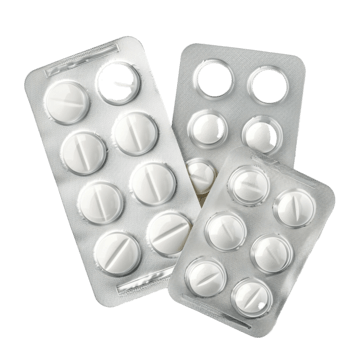Metformin

Metformin 500mg, 850mg, 1000mg
Metformin is an oral antihyperglycemic medication primarily used to manage type 2 diabetes by improving insulin sensitivity and decreasing glucose production in the liver. It helps lower blood sugar levels effectively and is often recommended as a first-line treatment option. Additionally, Metformin may aid in weight management and has shown potential benefits in reducing the risk of cardiovascular complications associated with diabetes.
Order NowDescription
Metformin is an oral antihyperglycemic agent commonly prescribed for the management of type 2 diabetes. It helps control blood sugar levels by improving insulin sensitivity, decreasing glucose production in the liver, and enhancing glucose uptake by tissues.
Uses / Indications
- Type 2 diabetes management
- Polycystic ovary syndrome (PCOS)
- Prevention of diabetes in at-risk individuals
- Improved glycemic control in combination with other antidiabetic medications
Dosage and Administration
Adults:
Start with 500 mg taken twice daily with meals. The dosage may be increased gradually based on blood glucose levels, with a maximum dose usually not exceeding 2000-2500 mg per day, depending on the specific formulation used.
Children aged 10 years and older:
Dosage typically starts at 500 mg once or twice daily, with gradual increases as needed and tolerated.
Note: Dosage may vary depending on individual medical conditions or doctor’s advice.
How It Works (Mechanism of Action)
Metformin primarily works by decreasing hepatic glucose production and increasing insulin sensitivity in peripheral tissues, leading to improved glucose uptake and utilization. This dual action helps to lower overall blood sugar levels without causing significant weight gain, making it a preferred choice for many patients with type 2 diabetes.
Side Effects
Common side effects:
- Gastrointestinal discomfort (nausea, diarrhea)
- Decreased appetite
- Metallic taste in the mouth
- Fatigue
Rare/serious side effects:
- Lactic acidosis (a rare but serious complication)
- Vitamin B12 deficiency
- Allergic reactions (rash, swelling, difficulty breathing)
Seek medical attention if serious side effects occur.
Precautions / Warnings
- Inform your doctor if you have kidney disease, liver disease, or a history of lactic acidosis
- Use caution if undergoing imaging studies that involve contrast dye
- Regular monitoring of kidney function is advised during treatment
Drug Interactions
May interact with:
- Diuretics and corticosteroids (may affect glucose control)
- Alcohol (increased risk of lactic acidosis)
- Other medications that affect kidney function
Always inform your healthcare provider about any other medications or supplements you’re taking.
Storage Instructions
- Store at room temperature (20°C–25°C / 68°F–77°F)
- Keep away from moisture and direct sunlight
- Keep out of reach of children
Missed Dose / Overdose
Missed a dose?
Take it as soon as you remember. If it’s almost time for your next dose, skip the missed one. Do not double up.
Overdose symptoms:
- Lactic acidosis symptoms (muscle pain, difficulty breathing, stomach discomfort)
- Severe dizziness or fatigue
- Nausea and vomiting
Contact a poison control center or seek emergency medical help immediately.
Contraindications
- Allergic to Metformin or any of its components
- Severe kidney impairment or active kidney disease
- History of lactic acidosis
Brand Names / Alternatives
- Glucophage
- Fortamet
- Riomet
- Generic name: Metformin

